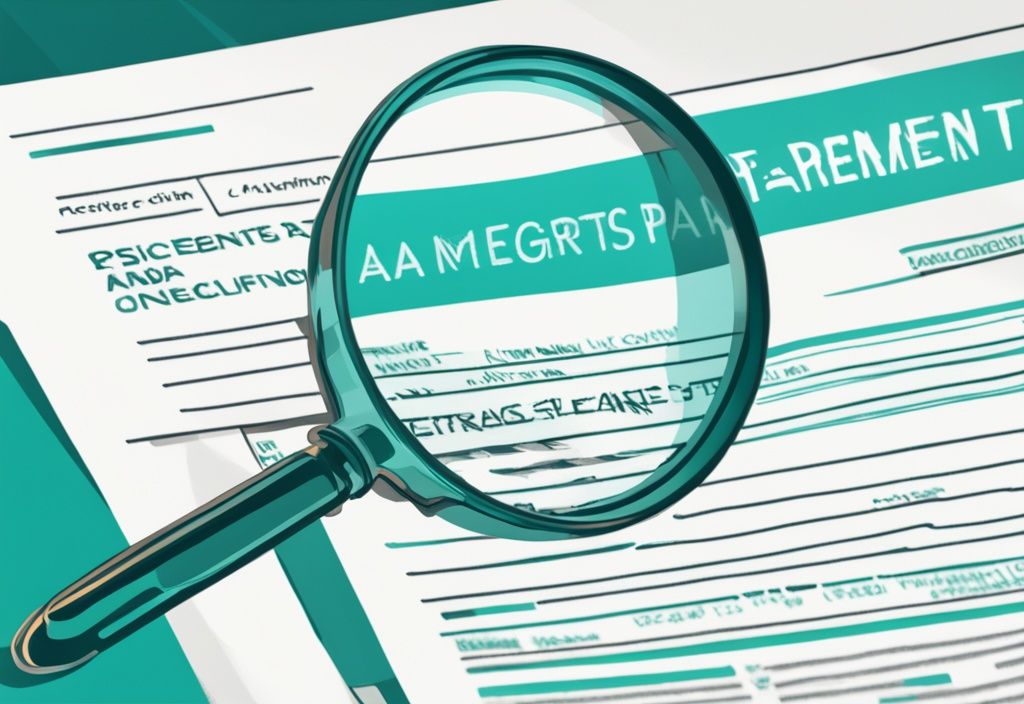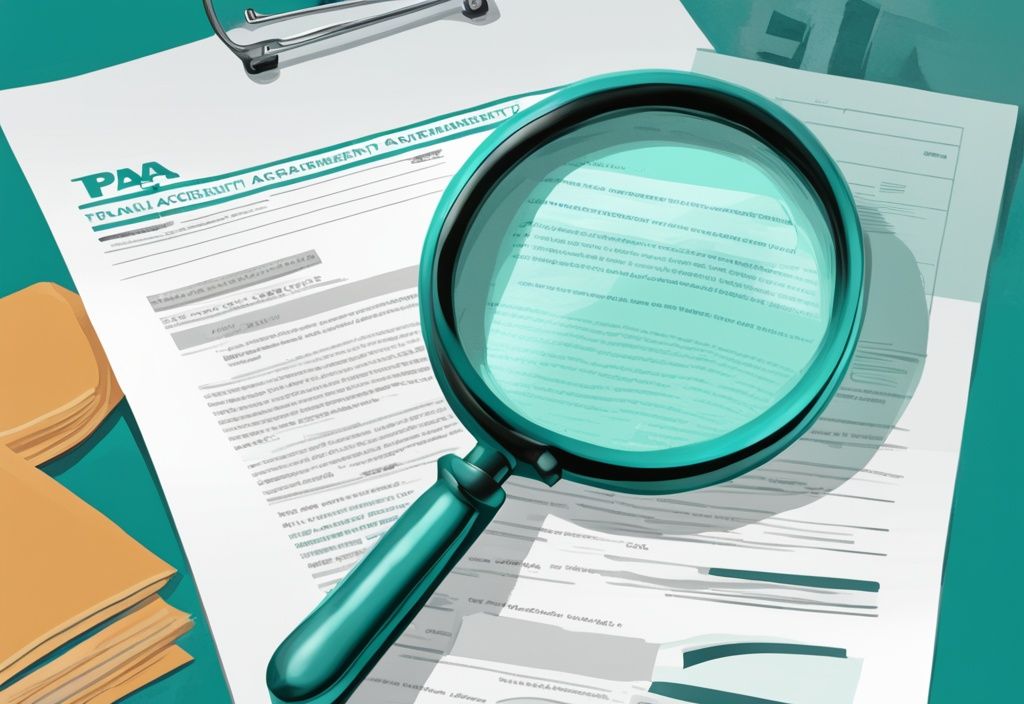Baffled by real estate acronyms like ‘PA’? You’re not alone! Let’s clear the fog together. In this article, we’ll uncover the mystery behind what PA stands for in real estate.
From my years of experience in the field, I’ve often found it essential to decode these abbreviations. You’ll get to know the nuanced definitions of PA being – a Professional Association and a Purchase Agreement. Both play significant roles in your real estate endeavors.
To honor your courageous step into the wonderful world of real estate, this read promises illuminating knowledge that simplifies your journey. So, stick around! Let me, Alex Harper, your experienced guide, navigate you through these abbreviating twists and turns. Believe me; it’s going to be a rewarding ride!
What Does PA Stand For in Real Estate?
In real estate, the abbreviation “PA” can mean different things, depending on the context. It’s crucial to understand these various meanings to navigate property transactions effectively.
Possible Meanings of PA in Real Estate
When we talk about “PA” in real estate, we’re usually referring to one of two important concepts:
- Professional Association: A business entity formed by licensed professionals, including real estate agents and brokers.
- Purchase Agreement: A legal document that records the details of a property sale.
Understanding PA as a Professional Association
A Professional Association (PA) in the real estate world is essentially a legal business entity created by licensed pros like agents and brokers. Think of it as forming a shield around your personal assets, very much like how a corporation works. This setup offers some pretty sweet perks:
- Liability Protection: Your personal and business assets are kept separate, so if things go south, your home and personal savings aren’t at risk.
- Tax Advantages: Operating as a PA can offer favorable tax treatments, which means potentially keeping more of what you earn.
- Flexible Income Distribution: This can be especially handy if you’re working solo or within a small group, allowing you to manage income more strategically.
Forming a PA can be a game-changer for real estate folks, providing both legal protection and financial benefits. It’s like having the best of both worlds!
Exploring PA as a Purchase Agreement
The other common meaning of “PA” in real estate is a Purchase Agreement. This is a pivotal document you need when buying or selling a property. It’s your roadmap, detailing every little aspect of the deal:
- Prices: The agreed sale price of the property.
- Closing Dates: Key dates, including when the sale will be finalized.
-
Contingencies: Conditions that must be met for the sale to proceed.
In this video, discover the ins and outs of what a Professional Association (PA) means in real estate and how it can benefit your career as a real estate agent. - Terms of Possession: When the buyer can take possession of the property.
Negotiating a Purchase Agreement can be quite the back-and-forth process. Both parties discuss and tweak these terms until everyone is on the same page. Once it’s signed, you’re committed—it’s legally binding and ensures both the buyer and seller stick to what’s been agreed upon. This document is the cornerstone of a smooth and clear-cut property transaction.

Professional Association (PA) in Real Estate: A Brief Overview
In this section, we’ll explore what a Professional Association (PA) stands for in the real estate world, delving into its formation, advantages, and the impact it can have on your real estate practice.
What is a Professional Association?
A Professional Association (PA) is a unique legal entity set up by licensed professionals. When we talk about what does PA stand for in real estate, it refers to an organization created by real estate agents and brokers, akin to how doctors and lawyers form their own PAs. To establish a PA, you need to follow specific state documentation and compliance rules.
This organized framework doesn’t just streamline your business operations; it also grants a layer of legal separation from your individual professional activities. For more insights on the benefits of joining a professional association, check out this article: https://www.iamc.org/Blog/ArtMID/27836/ArticleID/4526/Back-to-Basics-5-Benefits-to-Joining-a-Professional-Association. Imagine it as having a safety net that ensures your professional dealings don’t spill over into your personal life.
Key Advantages of Forming a PA in Real Estate
Forming a Professional Association in the real estate sector comes with a basket of benefits:
- Liability Protection: One of the biggest perks is liability protection. This setup effectively separates your personal assets from business liabilities. So, if there’s ever a legal dispute or financial claim against the business, your personal savings and property remain untouched.
- Tax Benefits: A PA opens up a world of tax advantages. You can choose between tax election options like C-Corporation or S-Corporation. This flexibility can translate into significant tax savings through various deductions and more favorable tax treatments. Plus, it helps in minimizing self-employment taxes, thereby optimizing your financial operations.
- Enhanced Credibility: Forming a PA can dramatically enhance your business credibility. This formal structure signals a level of professionalism and commitment to clients, bolstering trust and boosting your reputation.
- Reduced IRS Audits: PAs typically experience fewer IRS audits compared to sole proprietorships. This is because the rigorous accounting and procedures required for maintaining a PA lead to clearer, more reliable financial records. Adhering to strict regulatory standards showcases your compliance and sound business practices, deterring unnecessary scrutiny from tax authorities.
To sum up, understanding what does PA stand for in real estate and leveraging the benefits of forming a Professional Association can offer significant advantages. Whether it’s protecting personal assets, optimizing tax treatments, or enhancing your professional credibility and operational efficiency, a PA might just be the strategic move your real estate business needs.
Demystifying Purchase Agreement (PA) in Real Estate
Understanding the intricacies of a Purchase Agreement (PA) is essential for anyone involved in a real estate transaction. This section delves into what a PA is and why it’s so crucial.
Understanding a Purchase Agreement (PA)
A Purchase Agreement (PA) is a comprehensive legal document crucial for real estate transactions, outlining all pertinent details of a property sale. It typically includes the contract date, names of the involved parties, a thorough description of the property, the agreed-upon sale price, and terms of financing. Additionally, the document specifies the property’s condition and the procedures for closing the deal.
Drafting and negotiating such agreements are often managed by a real estate attorney or a licensed realtor to ensure accuracy and compliance with legal standards. Both buyer and seller must fully understand and concur with the terms outlined in the agreement before signing, as this document will legally bind both parties to the transaction.
Imagine you’re buying your first home. It’s an exciting process but can be fraught with confusion. The PA serves as your roadmap, guiding you through each step and protecting your interests. For instance, if an inspection reveals unforeseen issues, the contingencies outlined in the PA can give you leverage to renegotiate or even exit the deal without losing your deposit. This level of detail and foresight shows why a PA is not just a formality but a critical aspect of any real estate transaction.
Why is a Purchase Agreement Crucial in Real Estate Transactions?
A Purchase Agreement (PA) is essential in real estate because it delivers a clear legal framework for the transaction, promoting transparency and understanding. It clearly delineates the rights and obligations of both the buyer and seller, significantly reducing the potential for disputes. By including specific conditions and contingencies, the agreement offers protections to both parties, preventing misunderstandings and conflicts.
Once signed, the PA becomes a legally binding document, underscoring its vital role in real estate transactions. It ensures that every aspect of the sale is documented and agreed upon, which can be instrumental in facilitating a smooth and successful transaction.
Take, for example, the sale price included in the PA. This single figure isn’t just about the money exchanged; it’s about ensuring that each party is on the same page. If the agreed-upon sale price is different from what one party expects, this discrepancy can cause significant conflicts. With everything clearly documented in the PA, such issues are avoided, smoothing the path to closing the deal.
The PA also spells out the closing procedures, so you know exactly what to expect and when. This reduces the stress and potential misunderstandings, making your real estate journey a bit easier and more enjoyable.
In essence, a well-drafted Purchase Agreement is like a safety net, catching any potential fallouts and ensuring that the deal progresses smoothly and transparently. Trust in this document, and you’ll feel much more secure navigating the sale or purchase of your property.
Benefits of PA for Real Estate Agents
Considering forming a Professional Association (PA) or understanding Purchase Agreements? Here’s a breakdown of their significant roles and advantages for real estate agents and successful property deals.
Professional Associations: A Strategic Move for Agents
Forming a Professional Association (PA) can be a real game-changer for real estate agents. Think of it as creating a sturdy shield that separates your personal savings from business liabilities. If any legal or financial issues pop up, your personal assets are safe and sound.

But that’s just the tip of the iceberg. A PA also comes with juicy tax benefits.
You have the freedom to manage your income more flexibly, with options like a C-Corporation or an S-Corporation, which often opens the door to significant tax savings and deductions. This financial wiggle room can be a lifesaver when balancing business expenses and income.
If you’re involved in property management, understanding the role of a real estate transaction coordinator can further enhance your business operations.
Then, there’s the boost in business organization. A well-structured PA doesn’t just scream professionalism; it whispers stability and credibility in the crowded real estate market. Clients are more likely to trust you, translating into more business and a sterling reputation.
Assessing the Role of Purchase Agreements in Successful Deals
Purchase Agreements (PAs) are the unsung heroes of real estate transactions. They ensure that everyone’s on the same page by meticulously laying out the terms and conditions of the property sale. We’re talking prices, closing dates, contingencies, and possession terms – the whole nine yards. This clarity helps dodge any misunderstandings and disputes.
But a PA isn’t just a bunch of legal jargon. It’s a safety net for both parties involved. It provides a rock-solid legal framework that promises a smooth, hassle-free transaction. By documenting everything from property conditions to financial arrangements, these agreements offer peace of mind. A thorough PA makes sure every deal is executed with precision and trust, making it an indispensable tool for any real estate transaction.
Practical Implications of PA for Real Estate Professionals
Starting and maintaining a Professional Association (PA) within the real estate industry can significantly streamline your business operations and ensure compliance with state regulations. This section dives deep into the essential steps and considerations when establishing and managing a PA.
Setting Up a Professional Association
Establishing a Professional Association (PA) may seem daunting, but breaking it down into manageable steps can simplify the process and provide substantial benefits for real estate professionals.
Firstly, securing a tax ID number is a crucial step. Think of it as the PA’s own Social Security number, enabling it to function as its own entity. Next, setting up a dedicated business bank account is essential. This separation ensures that personal and business finances don’t intermingle, which is critical for maintaining clear financial records and leveraging potential tax benefits in the future.
Keep in mind that you’ll likely need to update your real estate license to reflect your PA’s name, adhering to state-specific regulations. This step is non-negotiable but relatively straightforward when you have the right documentation.
It’s also vital to ensure that brokers direct commission payments to your PA, not to you personally. This practice helps in maintaining accurate financial records and benefits from the structure and potential tax advantages of a PA. Ensuring compliance with state-specific documentation and regulatory requirements is fundamental to prevent any legal headaches down the line.
Don’t forget detailed accounting and operational procedures. They aren’t just about compliance—they also foster transparency and accountability, protecting your financial and legal interests. With a meticulous approach, you can simplify processes and safeguard your business’s future.
Keeping Purchase Agreements Transparent and Effective
Purchase Agreements (PAs) are more than just paperwork; they are the backbone of any real estate transaction.
When drafting a Purchase Agreement, clarity is king. Make sure every term and condition is laid out in plain language that’s easily understood by both parties involved. This transparency prevents misunderstandings and sets a solid foundation for the transaction.
Getting legal advice is a smart move to ensure your agreements stick to state-specific laws and regulations. This helps you avoid potential legal disputes which can be costly and time-consuming. Including necessary contingencies within the agreement is also critical. These contingencies act as safety nets, providing protection to both the buyer and seller against unforeseen issues.
Regular reviews and updates of the Purchase Agreement ensure it remains comprehensive and up-to-date with any new legal requirements or market conditions. This proactive approach builds trust and clarity between parties, smoothing out the transaction process.
By keeping these agreements transparent and effective, you foster a trustworthy relationship with your clients and partners, making every transaction as seamless as possible.
Conclusion
Understanding what does PA stand for in real estate reveals two crucial concepts: Professional Association and Purchase Agreement. Both significantly impact real estate operations, providing distinct advantages and protections that can benefit professionals and clients alike.
Professional Association (PA) in Real Estate
Forming a Professional Association (PA) in real estate is a savvy move for licensed professionals, like real estate agents and brokers. It’s all about shielding personal assets from business liabilities, offering you a vital layer of liability protection. Imagine a safety net that keeps your personal finances safe even if business-related legal issues arise.
Beyond liability protection, a PA also brings notable tax benefits. With different tax election options available—like filing as a C-Corporation or S-Corporation—you could find yourself taking advantage of potential tax deductions, making tax time much less stressful.
Creating a PA also conveys a level of professionalism and credibility in the industry. It shows clients and partners that you’re serious and committed, which can boost your reputation and attract more business. Not to mention, it might mean fewer IRS audits and lower self-employment taxes—a win-win!

Purchase Agreement (PA) in Real Estate
A Purchase Agreement (PA) is a cornerstone document in real estate deals. It captures every detail of a property sale, ensuring clarity and transparency between buyer and seller. Think of it as the rulebook that outlines the sale price, financing terms, property condition, and closing procedures.
This agreement is fundamental in reducing misunderstandings and disputes. By clearly defining the rights and obligations of both parties, it creates a solid legal framework. It’s packed with contingencies that protect both buyer and seller, making sure there’s a fallback plan if certain conditions aren’t met.
Getting to a final Purchase Agreement often involves negotiation. Real estate attorneys or realtors typically draft and review the terms to ensure fairness and legality. Once signed, it’s a binding contract—a key element in the smooth execution of real estate transactions.
Practical Benefits of PA for Real Estate Agents
For real estate agents, forming a PA can be a game-changer. The liability protection alone is invaluable in the litigious world we live in. Knowing that your personal assets are safe from business lawsuits or debts can provide significant peace of mind.
But it doesn’t stop there. The tax benefits of a PA are equally compelling. You can enjoy various deductions and tax election options, which can lower your overall tax burden. This setup allows for more flexible income management, which is great for financial planning.
Moreover, having a PA can elevate your professional image. It signals to clients and partners that you’re credible and dedicated, which can open more doors and grow your client base.
Role of Purchase Agreements in Successful Real Estate Deals
Purchase Agreements are indispensable in ensuring successful real estate transactions. They articulate the agreed-upon terms and conditions, which minimizes the risk of disputes. This level of clarity is crucial in preserving trust and transparency between buyer and seller.
These agreements also meticulously document every aspect of the property sale—from price negotiations to closing procedures. This thorough record helps in preventing misunderstandings and serves as a reference point if any issues come up during the transaction.
By outlining contingencies and legal protections, Purchase Agreements provide a safety net for both parties, ensuring a smoother and more secure transaction process.
Establishing a Professional Association (PA) in Real Estate
Setting up a PA involves several key steps, starting with obtaining a tax ID number and opening a dedicated business bank account. Keeping your finances separate is crucial for maintaining clear and organized financial records.
You’ll also need to update your real estate license to reflect the PA’s name, complying with state-specific regulations. Ensure that broker commissions are paid directly to the PA, so all income is properly allocated.
Compliance with state regulations and thorough documentation is essential. Consulting legal and financial advisors can help you navigate these requirements effectively, ensuring you maximize the benefits of a PA.
Keeping Purchase Agreements Transparent and Effective
For Purchase Agreements to be effective, all terms and conditions must be clearly stated and understood by both parties. Seeking legal advice ensures compliance with state-specific laws and regulations, making the agreement legally sound.
It’s crucial to include necessary contingencies to protect both buyer and seller. These provisions address potential issues that could arise, offering a safety net throughout the transaction process.
Regularly updating and reviewing the agreement ensures it remains comprehensive and current, reflecting any changes in laws or market conditions. This ongoing attention keeps the document effective and legally sound.
Understanding what does PA stand for in real estate is essential for professionals and clients. Both Professional Association and Purchase Agreement carry significant implications, enhancing business operations and ensuring smooth transactions in the real estate industry.
FAQ: What Does PA Stand for in Real Estate
How does forming a PA benefit real estate agents?
The benefits of forming a PA, or Professional Association, for real estate agents are plenty. Imagine separating your personal and business worlds—forming a PA does just that by safeguarding your personal assets against business liabilities. This separation can be akin to having a strong, protective fence around your home.
Moreover, a PA can provide fantastic tax advantages and give you more control over how you distribute your income. Think of it like tailoring a suit; everything fits just right, allowing you to look your best financially. Plus, a PA also boosts your professional image and credibility, reassuring your clients that they’re in seasoned, competent hands.
Why is a Purchase Agreement (PA) essential in real estate?
A Purchase Agreement (PA) in real estate isn’t just another piece of paperwork—it’s the cornerstone of any transaction. This legal document details the rights and obligations of both the buyer and the seller, laying everything out transparently to avoid any surprises down the road.
Imagine navigating a ship without a map; that’s what skipping a PA would be like. It ensures everyone is on the same page, making the transaction smooth and hiccup-free. Plus, since it’s legally binding, it provides peace of mind that all terms and conditions will be met, reducing the chances of disputes.
How can you set up a PA in real estate?
Setting up a PA in real estate might sound like a daunting task, but think of it like putting together a jigsaw puzzle—each piece has its place. Start by filing the necessary documentation with state authorities to legally recognize your PA.
You’ll also need to get a tax ID number and set up a dedicated business bank account, which acts as your financial control center. Don’t forget to get your real estate license updated to reflect the PA’s name. Since this process can vary by state, consulting a professional for guidance can be really helpful. They can provide you with a personalized roadmap, ensuring no piece of the puzzle is missing.
Hi, I’m Alex Harper, a real estate expert with over ten years of experience in property management and legal advice. My passion is making the often complicated world of real estate understandable. I share practical tips and simple solutions to help you make better decisions – whether you’re buying a home, renting or just want to learn more about the industry. With my knowledge and experience, I want you to feel well-informed and confident in your real estate projects. Let’s tackle this together!




